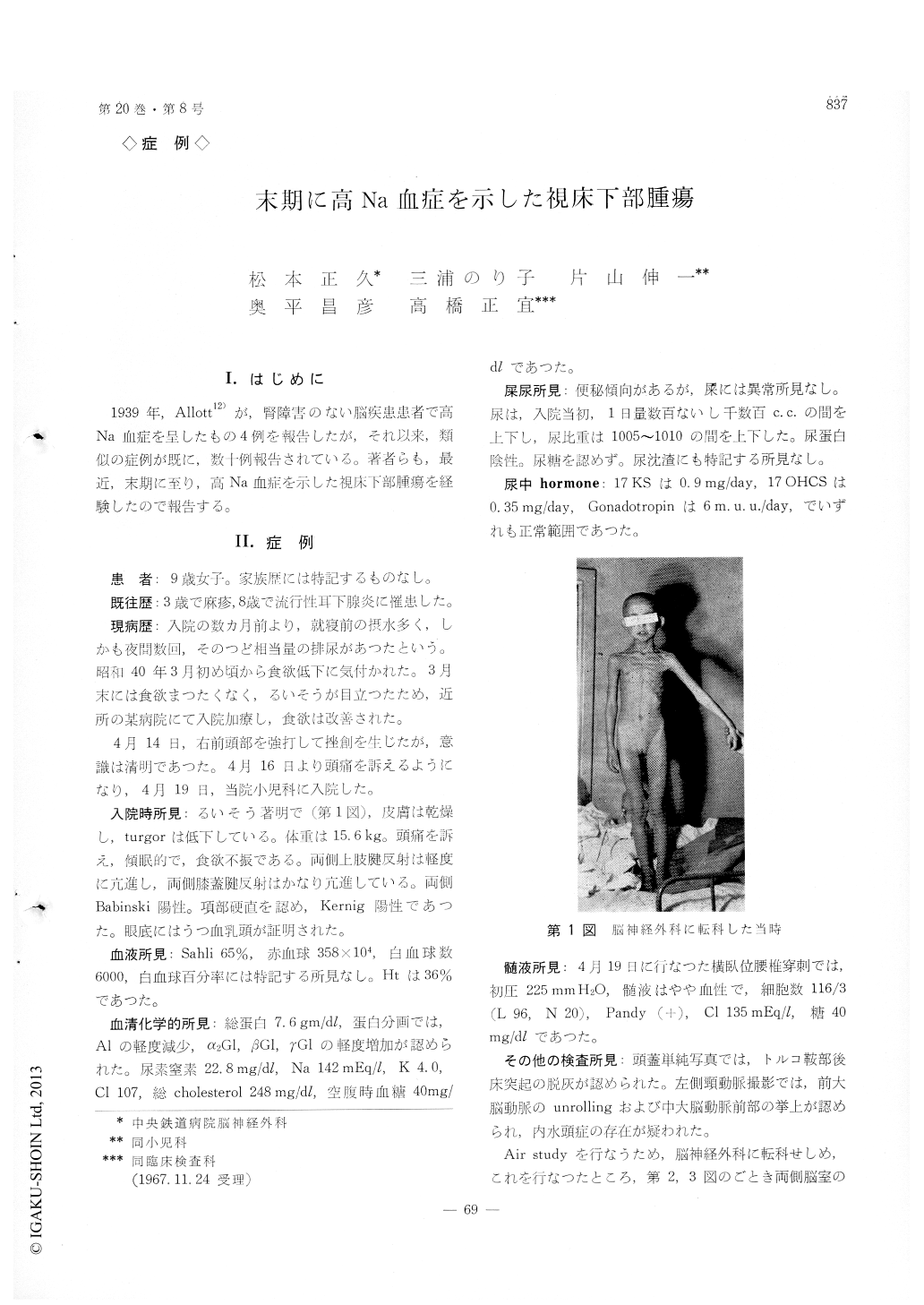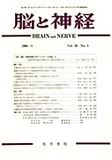Japanese
English
- 有料閲覧
- Abstract 文献概要
- 1ページ目 Look Inside
I.はじめに
1939年,Allott12)が,腎障害のない脳疾患患者で高Na血症を呈したもの4例を報告したが,それ以来,類似の症例が既に,数十例報告されている。著者らも,最近,末期に至り,高Na血症を示した視床下部腫瘍を経験したので報告する。
A nine-year-old girl visited our pediatric clinic with complaints of headache, anorexia and emaciation on April 19., 1965.
Her parents noticed her polydipsia and nocturia several months prior to admission, thereafter they also noticed her poor appetite at the beginning of March. She stroke her right frontal region on April 14. She has complained of generalized headache from April 16.
At the time of admission physical examination revealed marked emaciation, dry skin, lowered turgor, drowsiness, bilateral pyramidal signs, choked disc, etc. 'File left sided carotid angiography showed un-rolling of the anterior cerebral artery and elevation of the anterior portion of the middle cerebral artery. Combined air study with pneumoventriculography revealed symmetrical dilatation of the bilateral ven-tricles and space occupying shadow in the anterior portion of the third ventricle. Bloody mucous con-tent was obtained by stereotactical exploratory punc-ture of the tumor, and cytological examination veri-fied the malignant cells of Papanicolaou's class V. After the exploratory puncture, neurolological signs and general condition recovered excellently. Fol-lowing the second puncture in order to perform pneumocystography, the patient became lethalgic again. Elevation of the serum concentration of Na, Cl and Urea-N was verified on Mav 27. On thenext clay, acute gastric dilatation appeared and low concentration of the serum K was verified. The patient did not complain of thirstfeeling when her consciousness became clear. She expired of the cir-culatory insufficiency on June 8.
Autopsy was performed. Histological examination verified the ectopic pinealoblastoma.
Literatures about the hypernatremia with central nervous lesion were reviewed briefly. Thereafter itwas concluded that the hypernatremia of this case was at first due to the insufficiency of ADH secretion which resulted from the impaired sensitivity of the osmostatic mechanism, secondly due to the disturb-ance of thirst-feeling following the turbid conscious-ness or the disturbance of thirst mechanism itself, and thirdly due to the negative water balance.

Copyright © 1968, Igaku-Shoin Ltd. All rights reserved.


